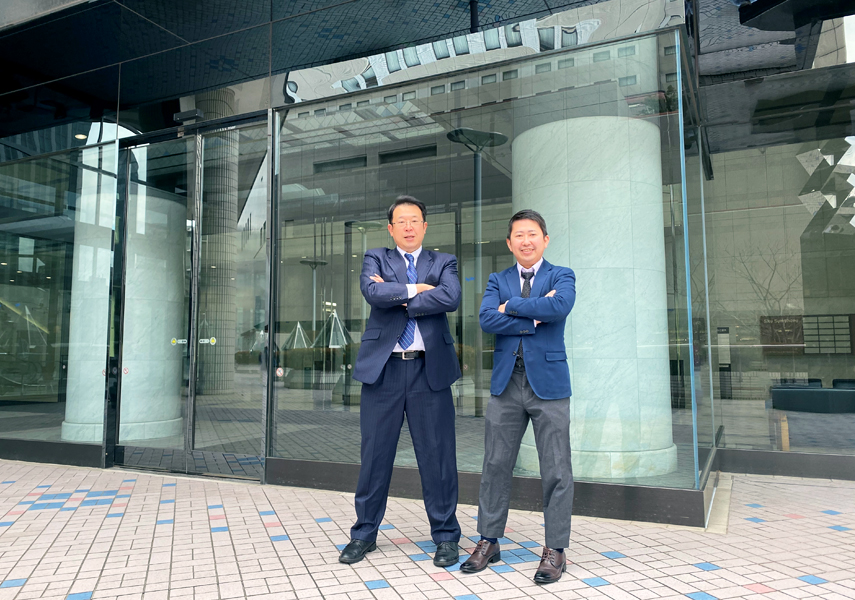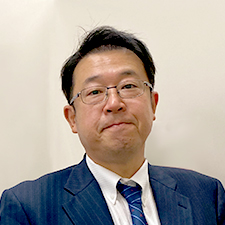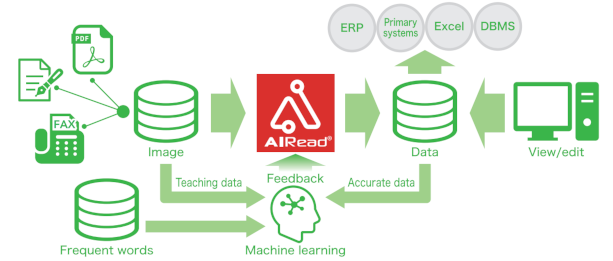
What We Can Do to Support the Continuation of Paper Distribution in Tohoku
Japan Pulp & Paper’s business is not limited to being a distributor (primary wholesaler) for paper manufacturers. It can also realize the new potential of paper and support and maintain paper distribution networks in regional areas.
Secondary wholesalers, known as "merchants," are the key to doing business in the Tohoku region, located in the northeastern part of Japan's main island of Honshu, and the stage for this issues’ topic. Merchants in the paper distribution industry are businesses that maintain stock and delivery functions and sell various kinds of papers including printing paper, paperboard, and communication paper to printing companies, publishers, general companies, and the local authorities. Printing companies and publishers use various styles of paper for a variety of purposes, and in many cases, the paper can’t be delivered in the large bulk form in which paper distributors, such as Japan Pulp & Paper, purchase it from paper manufacturers. That's why merchants provide detailed services, such as cutting the paper into small lots and delivering it in accordance with the customer's needs. A characteristic of merchants in the Tohoku area is that very few businesses deal with just paper alone, with many also often selling other items such as office supplies.
To date, the Tohoku Sales Department at Japan Pulp & Paper’s Kitanihon Branch has had a history of working with merchants and other customers in the region, which will remain unchanged. Local customers will continue to serve as the key to its business.
Japan Pulp & Paper’s slogan is “Paper, and beyond.” It is a phrase that expresses the company’s attitude to continue to move forward together with paper and to what lay ahead. The future is what is important; however, the future is supported by the present and the past. Our future business will not succeed if we do not value the relationships of trust that we have continuously built with our customers in the region. Still, it is also clear that we will not be able to survive with our past business practices alone. To continue to support paper distribution in Tohoku, the Tohoku Sales Department is eyeing a circular society while contemplating something new as it now faces a time to transform.

General Manager
Tohoku Sales Department, Kitanihon Branch

Sales Section 1, Tohoku Sales Department, Kitanihon Branch
Paper Distribution in the Tohoku Region Today
In 1961, the company opened its first base in Tohoku, renting office space at the Sendai branch of Akazawa Paper, a merchant and valued customer based in Morioka, Iwate Prefecture. “Collaboration with merchants was indeed the origin of the Tohoku Sales Department,” says Wakameda. From its inception to the present day, wholesaling has remained the cornerstone of our business in the Tohoku region.
Wakameda’s assignment to Tohoku Sales Department was announced on the day before the Great East Japan Earthquake in 2011. This unexpected disaster was a huge blow to the business in Tohoku that saw a particularly sharp drop in population. While paper demand in the region had been around 2% of nationwide distributor results when Wakameda assumed his post, the figure now stands at about 1.6 to 1.7%. “I’d heard that sales had been favorable until March 10, 2011,” Wakameda said. “Then the disaster struck, and the Tohoku region was severely affected. The momentum of the past has never recovered, and a decrease in paper demand caused by advancements in digitalization and other such factors has further exacerbated the problem.”
Then, to make things worse, the COVID-19 pandemic struck. Another characteristic seen in Tohoku is the demand for paper associated with events such as the Sendai Tanabata Festival and Aomori Nebuta Festival. However, the cancelation of these local events has dramatically decreased the volume of paper sold.
Despite various ongoing negative phenomena, including fewer local jobs, Wakameda offers a glimpse of his positive stance. “It might be correct to say we have no choice but to look for opportunities in areas other than sales of printing paper, but I see this as an environment that allows us to focus on creating new schemes.” In Tohoku, many merchants have long histories. Wakameda is prepared for his Tohoku Sales Department to continue to unite as one and make every effort to prevent those histories from coming to an end.
Proposing Products that Answer to Customer’s Needs and Coordination with Manufacturers
In the Tohoku region and other parts of Japan, besides providing a stable supply of paper, a crucial role played by Japan Pulp & Paper is that of cultivating demand. Examples of that include introducing new products and making sales method proposals. Bearing in mind the trend to move away from plastic in recent years, Kawabuchi has focused his attention on Nippon Paper Industries’ LAMINA®. Kawabuchi introduced LAMINA®, which originally comes in roll form, to the limited number of merchants in Tohoku that can cut rolled paper and together succeeded in stimulating potential demand.
In addition to LAMINA®, Kawabuchi proactively proposes biodegradable and renewable materials. Among such materials, Kawabuchi notes Oji F-Tex’s SILBIO BARRIER, paper material with barrier properties for packaging without plastic that can curb oxygen and water vapor leaks.
Kawabuchi is never off guard when it comes to coordinating with manufacturers. To enhance precision levels, he makes it a rule to gather information from various sources in different directions, both within and outside the company, gain a firm grasp of the details, and offer only the information he judges to be accurate to manufacturers. He is prepared to always be on the alert for the latest information available in the Tohoku area for which he is responsible and from Tokyo, where the paper manufacturers’ head offices are located.

-
 Heat-sealable LAMINA® paper that can be used for creating packaging from paper alone
Heat-sealable LAMINA® paper that can be used for creating packaging from paper alone
Our Role:
To Support Merchants from Various Perspectives
As mentioned earlier, festivals in the Tohoku region and paper consumption are closely related. Narumi-Kamiten, headquartered in Hirosaki, Aomori Prefecture, supplies approximately 80 percent of the shoji paper used for Aomori’s famous Neputa festival. Narumi-Kamiten became a part of the Japan Pulp & Paper Group in August 2021 and serves as a good example of the trust relationships the Tohoku Sales Department has continued to build. “It’s thanks to those who have come before me who have been responsible for the Narumi-Kamiten account at our Tohoku Sales Department that we’re where we are today,” Wakameda says. Continuing to grow from the foundation that our predecessors built—that’s the mission imposed on the Tohoku Sales Department, and it is substantial. To date, Narumi-Kamiten has been focusing its efforts, first and foremost, on community-based service. Its addition to the Japan Pulp & Paper Group will blend its solid sales network in western Aomori with the group’s broad array of products and planning strengths and open up new possibilities. To change expectations to certainty, the Tohoku Sales Department will continue to respond to increasingly complex requests from customers and contribute to maintaining paper distribution networks in the region.
Merchants in Tohoku are no exception to the nationwide trend of a decreasing demand for paper, and they have no choice but to seek other new products. As part of such efforts, Kawabuchi has also proposed AIRead from Arise Innovation, part of the Japan Pulp & Paper Group. Kawabuchi stresses that AIRead, a tool that handles everything from the digitalization of ledgers to system linkage, enhances work efficiency by migrating from analog to digital and will also become a new product for merchants to sell. He considers eliminating paper for some business tasks inevitable and is set to boost his contribution level by gaining more knowledge of DX.


Initiatives for Resolving Issues
Anticipation from local merchants mounts for resolving logistics issues, which are a significant challenge for the industry as a whole. “Many warehouses owned by the various merchants are so huge that they’re incomparable to those in Tokyo. At the same time, the decrease in demand for paper and changes in delivery patterns have made it more difficult to maintain the logistics function. I hope that we can build a new system of joint deliveries and storage taking advantage of this situation. Nothing would make us happier than acting as a bridge between competing merchants and working together with them to resolve the common challenges we all face within the industry,” Wakameda said.
It may not be long before the future image that Wakameda has been envisioning for some time becomes a reality as he is also considering collaborating with JP Loginet, a logistics company and pioneer in coordinated deliveries that is part of the Japan Pulp & Paper Group. If joint deliveries could be possible with other companies in the same industry, it would reduce wasted time and costs and improve efficiency. “Further decreases in the population on the back of the decreasing birthrate and an aging population is bound to intensify the workforce shortage. Therefore, there is an urgent need to create a new logistics framework to resolve such social issues,” Kawabuchi says while also contemplating “joint cutting services” for boosted efficiency in the cutting process.
Looking Ahead
Wakameda is counting on the ability of Kawabuchi and the other young sales personnel to cope at the front lines of business while also seeing plenty of room for them to grow further. “I look forward to every one of them becoming dependable and irreplaceable to their community,” he says, aiming to develop them into the leading team in the Tohoku region in both name and reality. Wakameda’s ultimate objective is to maintain the paper distribution network in the area and create an organization that can offer the wonders of paper to society.
We must not let the old ways die out, however, for the future it is essential that we take on new challenges. It has become more evident than ever that we cannot survive with the previous business models alone. While it is undeniable that there will be resistance and opposition to change, extra ingenuity, perseverance and the will to never give up, and the ability to make proposals that can win the nod of other parties will serve to break through current conditions. The Tohoku region and the whole of Japan are facing difficult times, but the Tohoku Sales Department will work together with merchants, end-users, and converters, and continue to flexibly take up the challenge as one team.
The information provided herein was current at the time of its announcement.
Please note that this information may be subject to change without notice.
[Published on May 25, 2022]








